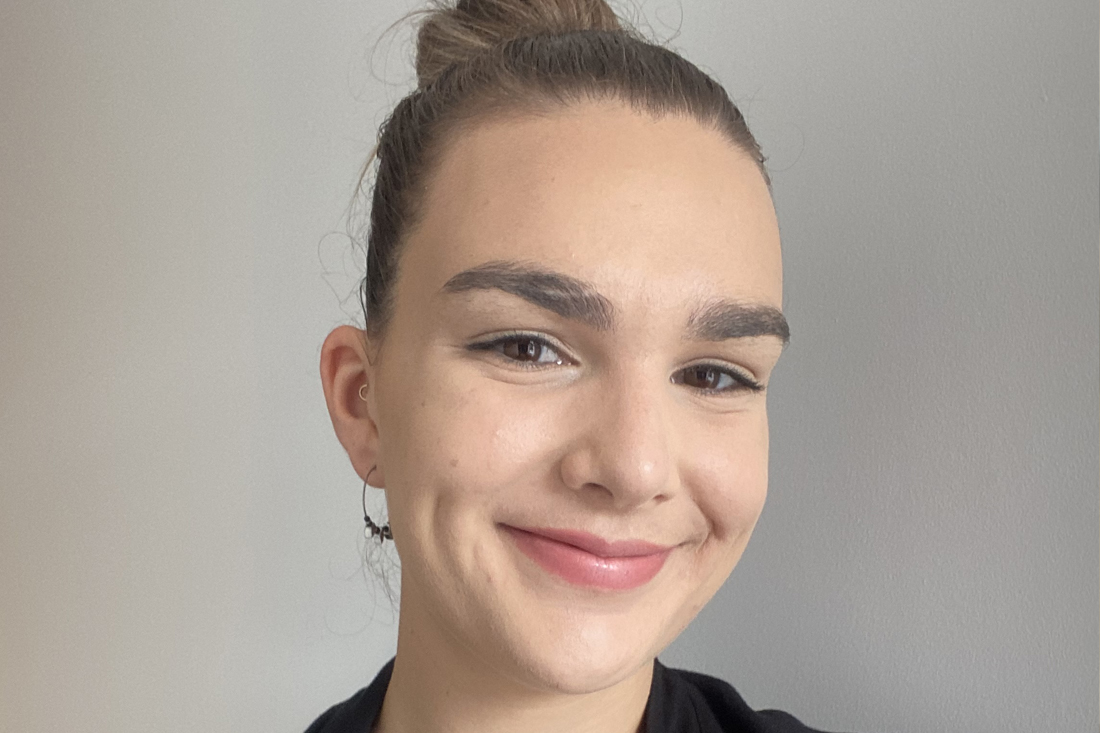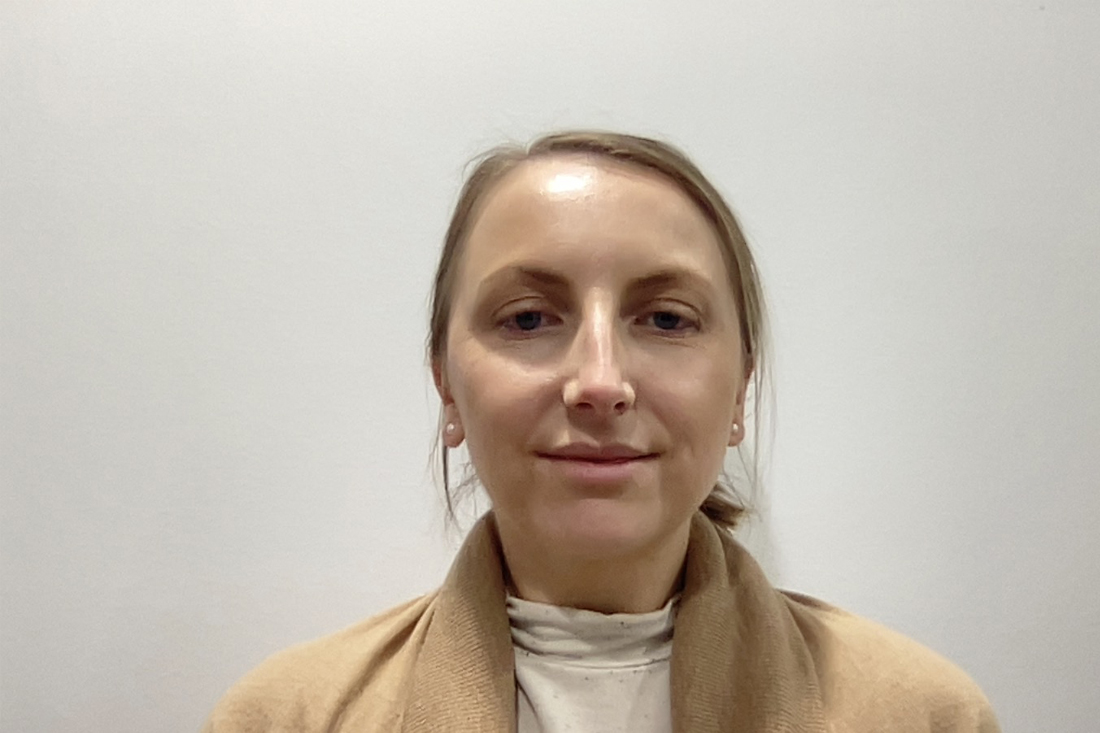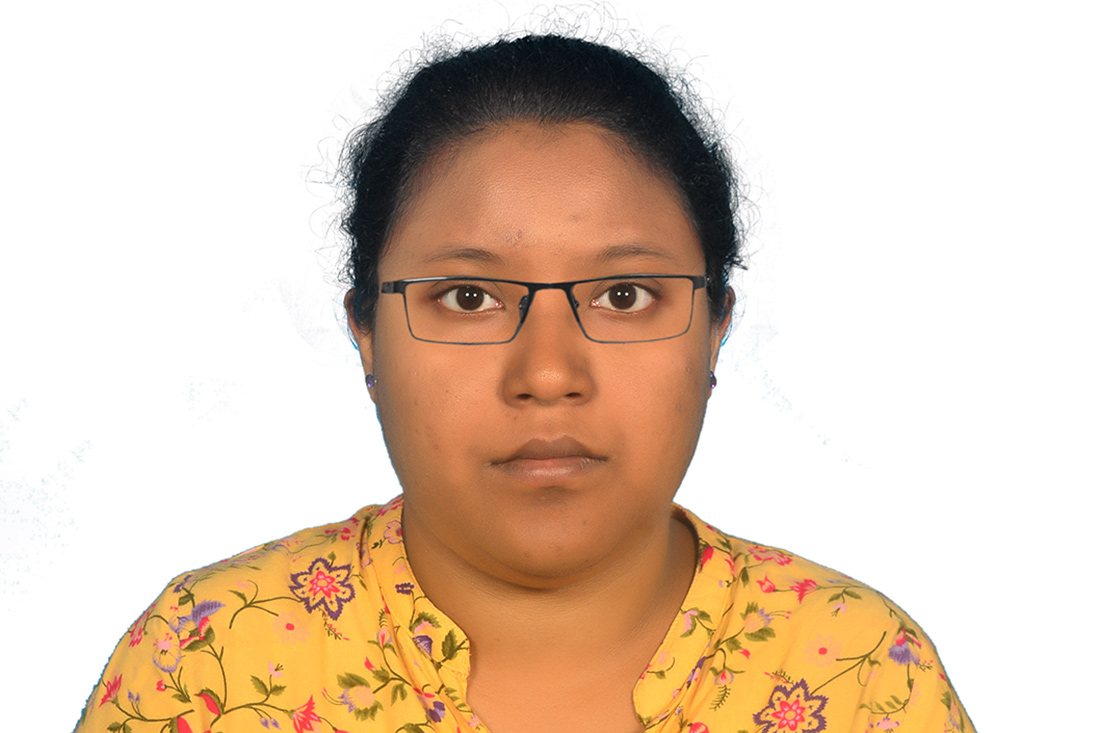Higher degree research (HDR) study in psychology and counselling
HDR students in the School of Psychology and Counselling undertake Doctor of Philosophy (PhD – IF49; 3 years full time) or Master of Philosophy (MPhil – IF80; 2 years full time) research training in a variety of topic areas, spanning cognitive, developmental, social and organisational, and mental health and clinical research projects. They use a diversity of quantitative and qualitative methodological approaches, and many engage with external partners, to deliver impactful research that benefits individuals and the community. Our graduates go on to use their research and analytical skills in a variety of academic and professional careers, spanning universities and government and non-government sector organisations.
- HDR students based in the Centre for Accident Research & Road Safety—Queensland (CARRSQ) in the School of Psychology and Counselling.
- Current HDR students in the School of Psychology and Counselling may email alpr.pc@qut.edu.au for information on how to add their profile to this page.
Current students

Michael Wong
Vicarious trauma and vicarious posttraumatic growth in social workers from diverse cultural backgrounds in Australia
The research aims to explore the lived experience of vicarious trauma and vicarious posttraumatic growth in social workers from multiple cultural backgrounds in Australia. This study will employ a qualitative longitudinal research (QLR) design, with two data collection points (T1 & T2) over nine to twelve months. A qualitative methodology, Interpretative Phenomenological Analysis (IPA), will be used to explore and provide detailed examinations of how the research participants from diverse cultural backgrounds make sense of their personal lived experiences of vicarious trauma and vicarious posttraumatic growth. The findings of this research can be used to inform programs and policies to support the wellbeing of multicultural social workers.
Principal supervisor: Professor Jane Shakespeare-Finch
Associate supervisor: Dr Michelle Newcomb
External supervisor: Adjunct Professor Renata Meuter

Catherine Kennon
Developing and validating a night-time driving hazard perception test: application of data-driven principles
Driving at night is challenging. At night-time, visibility is reduced, light-levels are low and glare from oncoming headlights causes discomfort. Older adults find night-time driving particularly challenging and are more vulnerable to injury and mortality when involved in road incidents. Despite these challenges, there are no validated methods for measuring driving ability and safety at night. One approach that has been used for daytime driving is the Hazard Perception Test (HPT), where performance is measured by the speed that drivers respond to hazards in videos, using pre-determined hazard specifications. HPT performance has been shown to correlate with driving ability and safety. This approach may be promising for assessing night-time driving and could be enhanced using objective scoring methods that do not rely on pre-defined specifications. The primary aim of this research is to develop a novel night-time HPT to assess drivers' hazard perception abilities at night. The night-time HPT will be validated against other known predictors of hazard perception ability such as motion perception tests. A secondary aim is to investigate whether machine learning (ML) algorithms can be applied to objectively score the night-time HPT. This area of research will make a key contribution to understanding night-time driving safety, by providing a tool that can be used to provide an index of night-time driving ability and hence identify safe and unsafe drivers.
Principal supervisor: Professor Joanne Wood
Associate supervisors: Associate Professor Philippe Lacherez and Associate Professor Alex Black
External supervisor: Alison McKendrick (University of Melbourne, Optometry and Vision Sciences)

Sarah Olsson
Fear conditioning: The role of stimulus valence in return of fear
Anxiety disorders are the most common mental disorder. Exposure therapy is well-supported as an effective treatment, however, return of fear is common. Fear is acquired through Pavlovian classical conditioning and exposure therapy is based on the understanding of an inhibitory learning model. According to this model the initial learned conditioned stimulus (CS)/ unconditional stimulus (US) association is maintained in extinction, while a second inhibitory association is developed. This research aims to investigate the effect of post-extinction CS valence on return of fear. Therefore, it will further the understanding of the relationship between evaluative and fear conditioning.
Principal supervisor: Professor Ottmar Lipp
Associate supervisor: Dr Luke Ney

Chris Cahill
Functional imagery training to build motivation for self-guided therapy for young people
Self-guided digital health interventions (DHIs) have the potential to deliver meaningful improvements for young Australians who often face higher rates of mental illness and barriers to traditional therapy compared with the general population. An individual's motivational state has been identified as a risk-factor in experimental studies and a common theme among participants who fail to engage with DHIs. Functional imagery training (FIT) is a promising new intervention that combines the client-centred counselling of motivational interviewing (MI) with multisensory imagery training to support motivation. My research investigates the utility of self-guided FIT as a motivational intervention for increasing young people's adherence to DHIs.
Principal supervisor: Associate Professor Melanie White
Associate supervisor: Dr Jennifer Connolly

Mohamed Mubeen Tuan Faizer
Augmenting the prognostic utility of current methods of predicting persistent post-concussion symptoms (PPCS): Social cognitive and interoceptive impairments as possible predictors of PPCS
Persistent post-concussion symptoms are commonly encountered in clinical practice among patients following a mild-traumatic brain injury. Currently there is no established way of predicting which individuals are most at risk of developing persistent post-concussion symptoms after sustaining a mild-traumatic brain injury. Impaired interoceptive awareness and social cognition in the early phase following a mild-traumatic brain injury have been under-explored as predictors of functional recovery following mild-traumatic brain injury. Consequently, this research project will specifically examine the relationship between recovery trajectories and i) interoceptive awareness impairments and ii) social cognitive impairments among individuals with a diagnosis of mild-traumatic brain injury.
Principal supervisor: Professor Karen Sullivan
Associate supervisor: Dr Sherrie-Anne Kaye
External supervisor: Associate Professor Liisa Laakso (Mater Research)

Valeriya Tolkacheva
Cognitive and neural mechanisms for perceiving and misperceiving speech
Listeners can use prior knowledge to predict the content of noisy speech signals, enhancing perception. However, this process can also elicit misperceptions. This thesis aims to investigate how perception and misperception of degraded speech occur during the pop-out phenomenon, whether misperceptions during pop-out can also occur at the sentence level with highly spectrotemporally degraded speech, and whether particular cortical regions are involved in correct perceiving and misperceiving of degraded speech. A better understanding of language processing and its organization might aid in the improvement of neurorehabilitation therapies for people with hearing difficulties and aphasia.
Principal supervisor: Professor Greig de Zubicaray
Associate supervisor: Professor Katie McMahon
External supervisor: Dr Sonia Brownsett (The University of Queensland, School of Health and Rehabilitation Sciences)

Lauren Piltz
Exclusionary school discipline and justice system involvement: Identifying opportunities to disrupt the school-to-prison pipeline
This project uses linked administrative records from education, justice, health, and community services to characterise the use of exclusionary school discipline practices within a large NSW population cohort, and to examine the relationship of disciplinary exclusion with different forms of justice system involvement. The project expects to deliver new information to inform policy makers, educators, criminologists, and psychologists regarding opportunities to avert the adverse outcomes of exclusionary discipline practices in Australian schools.
Principal supervisor: Professor Kristin Laurens
Associate supervisor: Professor Linda Graham
External supervisor: Professor Melissa Green (University of NSW)
External supervisor: Professor Kimberlie Dean (University of NSW)

Yi Wang
Exploring different paradigms to strengthen extinction in human differential fear learning
Human differential fear conditioning is utilized to model and understand the mechanisms involved in exposure-based treatments for fear and anxiety disorders. During acquisition, participants are presented with two conditional stimuli (CSs), one (CS+) paired with an aversive unconditional stimulus (US) and a second (CS-) presented alone. Extinction, the repeated presentation of the CSs without the US, is the standard paradigm to reduce conditional responding that has been acquired following the repeated pairing of CS and US in acquisition. However, this reduction of conditional responding is prone to relapse. Gradual extinction, the fading out of CS-US pairings during extinction, has been shown to reduce the return of fear in rodents, but evidence from human research is mixed. The current study will investigate the effect the gradual extinction procedure in human fear conditioning, assess whether it reduces the return of fear, and what factors would contribute to the effectiveness or ineffectiveness in reducing the return of fear.
Principal supervisor: Professor Ottmar Lipp
Associate supervisor: Dr Luke Ney

Tynneille Mulder
Emotion processing: Examining internal contextual influences on human facial expression recognition
Facial expressions play a vital role in interpersonal relationships and social interactions by conveying information on specific emotions. Emotional contexts across human facial expression recognition studies have considered an array of internal and external contextual variables. Typically, facial expressions are recognised faster and more accurately when contextual information is congruent with the emotion depicted in the expression in line with the perceiver's individual affective state (or mood). This research proposes to establish a mood induction procedure to investigate the influence of affective states on emotion perception. The project aims to address some of the inconsistencies presented in the literature and determine the mechanisms that mediate the influence of contextual information on facial expression recognition.
Principal supervisor: Professor Ottmar Lipp
Associate supervisor: Dr Stephanie Tobin
External supervisor: Belinda Craig (Bond University (Faculty of Health Sciences and Medicine)

Sarah Ahamed
Developing predictive biomarkers for psychosocial and sleep deprivation stressors in healthy adults
This doctoral study is situated within the framework of the DSTG-funded Mind and Body Performance Patch Project. The primary objective of this research is to enhance the understanding of the impacts of acute stress in the context of psychosocial and sleep deprivation stressors, employing biological markers and assessments of cognitive performance.
Principal Supervisor: Prof Karen Sullivan
Associate Supervisor: Prof Graham Kerr
| Name | Thesis | Principal supervisor | Associate supervisor |
|---|---|---|---|
| Alexandra Atherton | Childcare workers and occupational injury risk: Application of system thinking models and methods | Sharon Newnam | Nadine Brayley |
| Allan Hunt | Implicit privacy, explicit risks: Conceptualisations of personal information online | Katherine White | Cassandra Cross |
| Caity Macblundell | Social-emotional competencies in middle childhood protective factors against later school exclusion and health service use | Kristin Laurens | Linda Graham |
| Danielle Villoresi | Understanding self-image and compassionate goal adoption and pursuit in social media contexts | Stephanie Tobin | Patricia Obst |
| Dave Misso | Developing and testing a metacognitive relational narrative model for addressing the perpetration of domestic violence: A multidimensional feasibility study | Patricia Obst | Areana Eivers |
| David Waugh | Development, implementation and evaluation of a program to train and verify electrical safety competency of electrical workers | Sharon Newnam | David Rodwell |
| Diana Simes | A qualitative investigation of the experience of youth suicide intervention: Perceptions of adolescents, caregivers, and clinicians | Ian Shochet | Kate Murray |
| Emma Malone | Therapists working with trauma exposed clients: Identifying and understanding expressions of vicarious trauma | Jane Shakespeare-Finch | Brooke Andrew |
| Gia Nhi Lam | Exploring fear generalisation and intrusive memories in analogue trauma | Luke Ney | Divya Deepak Mehta |
| Jasmin Patel | The neural basis of real-time perception | Hinze Hogendoorn | Ottmar Lipp |
| Jason Pickard | The police perspective in responding to mental crises and the potential personal impacts | Esben Strodl | Luke Ney |
| Jessica Hargreaves | Salivary endocannabinoids as novel biomarkers of the stress response | Luke Ney | Ottmar Lipp |
| Katherine McCulloch | Exploring digital inclusion and intersectionality of multicultural multifaith LGBTIQ+ communities within Australian mental health websites | Erin O'Connor | Michael Dezuanni |
| Khalisa Amir Hamzah | The neurosteroid response to stress: A potential treatment for PTSD and contributor to intrusive memories | Luke Ney | Ottmar Lipp |
| Kobi Eales | Associative learning effects by temporal proximity and thematic relevance to an aversive outcome | Luke Ney | Ottmar Lipp |
| Marianne Dyer | An investigation of the impact leadership factors have on the mental health of emergency service workers | Jane Shakespeare-Finch | Erin O'Connor |
| Melinda Tickle | Statistics anxiety and the willingness to study statistics at university | Philippe Lacherez | Katherine White |
| Meryl Hunt | Using systems thinking to understand the vulnerability of personal care workers and intervention to mitigate the risks | Sharon Newnam | Nadine Brayley |
| Min Stewart | Examining predictive coding in the hierarchy of visual perception using fast periodic visual stimulation | Naohide Yamamoto | Graham Kerr |
| Minyi Chu | Exploring the relationship between dark personality traits and bystander behaviour in cyberbullying incidents | Stephanie Tobin | Marilyn Campbell |
| Nicola Binks | An Australian study analysing the impact of depression trajectories for children with experiences of abuse and neglect | Adrian Kelly | Kerryann Walsh |
| Peter Rogers | Examination of the impact of constructionist supervision on student learning and reflexivity | Areana Eivers | Jane Shakespeare-Finch |
| Preetika Chand | Examining social factors to improve traumatic brain injury outcomes from acute medical care to long-term community integration | Karen Sullivan | Bridget Abell |
| Rachel Cooke | Grief in paediatric palliative care: A conversation analytic study of communication between families and clinicians in medical consultations | Stuart Ekberg | Susan Danby |
| Rachel Pearce | Theory of mind, coping self-efficacy and social behaviour in autistic children with co-occurring anxiety: Associations and implications for intervention | Adrian Kelly | Marilyn Campbell |
| Rebecca Halsey | Barriers to participation in a health and wellbeing program for the transport and logistics industry | Sharon Newnam | Nadine Brayley |
| Ruoran Fu | Reducing out-of-home food waste among young adults in China | Katherine White | Patricia Obst |
| Ruqayya Dawoodjee | Developmental patterns of brain dysfunction during error processing among adolescents at risk for schizophrenia | Kristin Laurens | Hinze Hogendoorn |
| Sabrina Moonajilin | The influence of social networks on young Bangladeshi women's excess body weight | Katherine White | Patricia Obst |
| Sarah Forman | A phenomenological exploration into the experience of clinical supervision: A trauma informed approach | Zoe Hazelwood | Michelle Newcomb |
| Shuang Liang | Investigating the role of nutrition, inflammation, and methylation in the pathogenesis of eating disorders | Esben Strodl | Lynda Ross |
| Sophia Francesca Chua | Bus driver occupational hazards and shiftwork in the Philippines | Sharon Newnam | Ioni Lewis |
| Susan Smith | A collaborative, stepped, blended, patient-centred model of care for the mental health needs of cardiac surgery patients: Evidence, development and feasibility | Esben Strodl | David Kavanagh |
| Yu Qi | International students’ video gaming behaviour and wellbeing during the transition to study in Australia | Erin O'Connor | Daniel Johnson |
| Zhicheng (Lydia) Huang | The neural basis of phonological processing in spoken word production | Angelique Volfart | Greig de Zubicaray |
Past students (since 2022)
ALPRs and HDR representatives
The Academic Lead, Postgraduate Research in the School of Psychology and Counselling manages research training opportunities for the school’s HDR students (including candidature approvals and milestone processes), and connects prospective students to supervisory teams. The current ALPRs are:
The HDR student representatives in the school provide peer support and advice to fellow HDR students, and represent student views to the school. The current HDR student representatives are:
- Nicola Binks
- Lauren Piltz
- Yi Wang